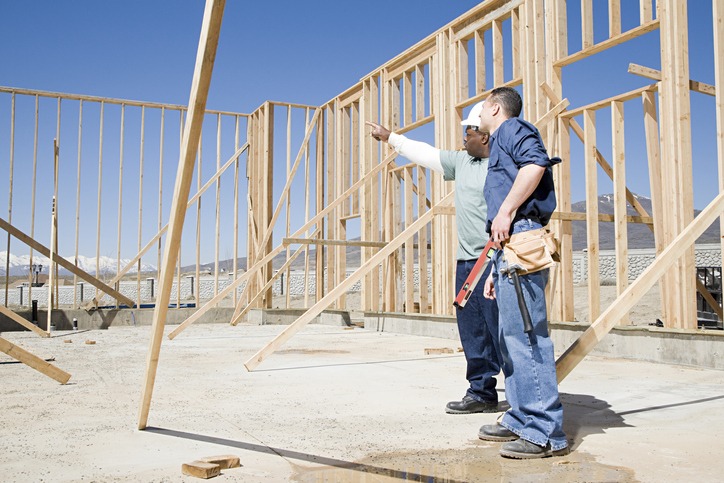When it comes to buying a house, you have plenty of options. There are ranch homes, craftsman-style properties, tutors, Victorians, modern, mid-century modern, and even the popular ‘modern farmhouse’ style. You have brick, stone, vinyl, wood, fiber cement, and stucco siding. You can go big or small (or anywhere in between). The options are endless.
Age is also something to consider. You can buy a home that was built 100-plus years ago, or you can buy a much newer home. And when it comes to ‘new’ homes, there’s the debate between brand new construction and properties that are recently new – meaning built within the past two to five years. But which one is better?
The Pros of New Construction
- Energy efficiency: New homes are built with the latest materials and appliances, which can be more energy efficient and cost-effective in the long run. (Particularly when it comes to utility costs.)
- Customization options: When you buy a new home, you often have the opportunity to customize it to your specific preferences and style. This allows you to select the newest trends and modern features.
- Warranty coverage: New homes typically come with a warranty from the builder, which can provide peace of mind and protection against any defects or issues that may arise.
The Cons of New Construction
- Higher cost: New homes are often more expensive than older homes, as they are built using the latest materials and construction techniques.
- Longer wait times: Depending on the location and demand, it can take some time for a new home to be built, which may not be ideal for buyers who need to move quickly.
- Unknown future issues: While new homes come with a warranty, it is possible that unknown issues may arise in the future. This is simply a risk that comes with buying any home, new or old.
Speaking of unknown issues, this is something that has become more problematic over the past several months.
“With the quick rise in interest rates, a lot of developers are taking shortcuts in order to get their properties sold off and liquidated,” attorney J. Scott Sweeney explains. “Unfortunately, this often leads to new homeowners experiencing issues down the road and having to enter into lengthy and expensive legal battles with the developer.”
This obviously doesn’t happen in every situation, but it’s worth noting that folks close to the industry, like Sweeney, are seeing an increase in the frequency of issues. An alternative is to rent a new apartment.
The Pros of 2-5-Year-Old Homes
- Kinks worked out: A home that’s a couple years old has had the kinks worked out. Any problems with plumbing, drainage, foundation movement, expanding soils, concrete cracks etc. have likely already been discovered (or will be identified in a home inspection). That means you don’t have to deal with the costs or headaches associated with them.
- More established neighborhood: A home that’s a few years old is usually going to be located in a more established neighborhood with more mature landscaping and less active construction.
Below, we explore the origins of stucco as explained to us by the professionals of Golden Trowel Stucco. With their insights and stucco repair services, you can make your old building look fresh and inviting again. Or, consider stucco for your new construction project to take advantage of this exterior material’s lasting aesthetic.
The Cons of 2-5-Year-Old Homes
- Older systems: Appliances, water heaters, HVAC systems – they all have limited lifespans. If the AC unit had an expected life of 12 years when installed, that same system might only give you another seven years on a five-year-old home.
- Less equity: As any real estate agent will tell you, a new construction home comes with instant equity baked in. Assuming the house was built well and is in a good location, you’re almost always going to extract extra value when it comes time to sell in the future. With a home that was built several years ago, somebody else already got to experience that bump in value. In fact, you’re the one paying the premium!
Which One is Better?
It would be nice if there was a blanket answer to this question – something that applies in every situation. However, the truth of the matter is that it depends. It depends on dozens of unique circumstantial factors like timeline, budget, risk tolerance, custom needs, and location. You’ll have to determine whether the pros outweigh the cons of each option and select the appropriate home for you and your family.
The good news is that you aren’t “marrying” the house. Just because you buy a house doesn’t mean you have to live there for 10 or 20 years. In fact, you could always decide to sell in a couple of years. Don’t let the notion of permanency force you to buy perfection. Buy a house that works for your family in the current stage of life you’re in and then figure out what comes next when that time arises. For now, enjoy your newly built (or recently newly built) home!

